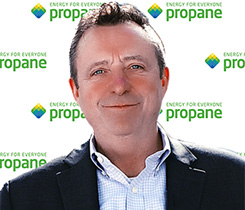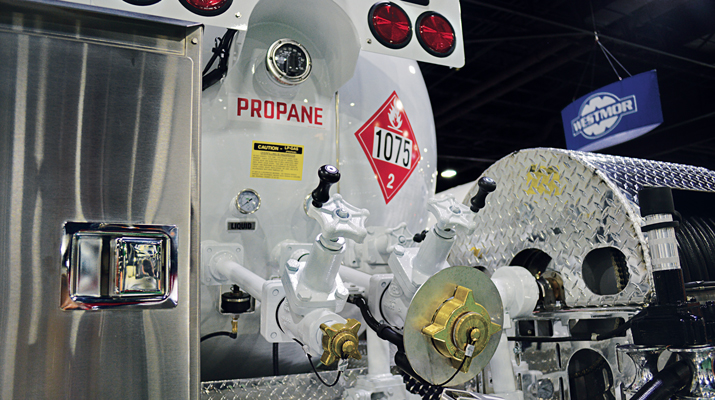Obama’s, Romney’s visions for America’s energy future vastly different
President Barack Obama and former Massachusetts Gov. Mitt Romney discussed a slew of topics during their three presidential debates in October, including jobs, taxes and health care. But the topic that sparked the most contentious moment between the candidates in all three debates turned out to be energy.
That moment occurred in the second presidential debate Oct. 16 following a question from audience member Phillip Tricolla on energy. Tricolla’s question to Obama was this: Your energy secretary, Steven Chu, has now been on the record three times stating it’s not policy of his department to help lower gas prices. Do you agree with Secretary Chu that this is not the job of the Energy Department?
Obama never answered the question about Chu and his responsibility toward gas prices directly, but the president did say domestic oil production is at its highest level in 16 years. He added that natural gas production is at its highest level in decades.
Obama also weaved clean energies such as biofuels, solar and wind into the discussion, stressing the importance of having a balanced domestic energy approach that can fuel vehicles and other applications in the United States in the future.
The challenge
Romney followed Obama’s point about domestic oil production by agreeing oil production overall in the United States is up, but that the Obama administration cannot be credited for the increase because production on government-controlled lands is down 14 percent.
“As a matter of fact, oil production is down 14 percent this year on federal land, and gas production was down 9 percent,” Romney said.
“Why? Because the president cut in half the number of licenses and permits for drilling on federal lands and in federal waters.”
Obama countered Romney’s point, arguing that his administration is drilling more on federal lands than during President George W. Bush’s administration. It was Obama’s comments about drilling on federal lands with which Romney took issue. The comments also led to the most heated moment of the debates.
“In the last four years, you cut permits and licenses on federal land and federal waters in half,” Romney told Obama.
“Not true, Gov. Romney,” Obama responded.
Romney, standing just a few feet from Obama in the debate circle, insisted Obama divulge a number regarding the permits and licenses Romney claimed he had cut from 2009-12. When Romney didn’t get the answer he expected immediately, he again demanded an answer from Obama regarding the number of permits and licenses the president allegedly cut.
In all, Romney demanded a number from Obama at least four times during the exchange. Once the two settled down and ceased talking over each other, Obama gave an answer.
“Here’s what happened,” Obama said. “You had a whole bunch of oil companies who had leases on public lands that they weren’t using. So what we said was you can’t just sit on this for 10, 20, 30 years, decide when you want to drill, when you want to produce, when it’s most profitable for you. These are public lands. So if you want to drill on public lands, you use it or you lose it.”
Still unsatisfied, Romney again asked about oil production on federal lands.
“Production is up,” Obama said.
“[Production] is down,” Romney fired back.
“No it isn’t,” the president responded.
“Production on government land of oil is down 14 percent,” Romney countered.
“It’s just not true,” Obama said.
Eventually, near the end of the energy discussion, moderator Candy Crowley circled back to Tricolla’s original question about gas prices. She asked the president to address $4-per-gallon gasoline and Romney’s claim that if the administration’s energy policy were working, the price of gasoline would not be about $4 per gallon.
“When I took office, the price of gasoline was $1.80, $1.86,” Obama said. “Why is that? Because the economy was on the verge of collapse, because we were about to go through the worst recession since the Great Depression, as a consequence of the same policies that Gov. Romney’s now promoting.”
The first get-together
Energy wasn’t part of the formal agenda during the first presidential debate Oct. 3 in Denver, but the candidates weaved the topic into the debate as they discussed ways to create jobs.
While Obama again highlighted his desire to invest further in green energies, Romney stressed his administration would invest in crude oil drilling off Alaska’s coast and develop the Keystone XL oil pipeline that would stretch from Canada to Texas. The Obama administration blocked approval of the Keystone pipeline in 2011.
Romney also brought up coal as a domestic energy source that needs the federal government’s support.
“I’m going to make sure we can continue to burn clean coal,” Romney said. “People in the coal industry feel like it’s getting crushed by your (Obama) policies. I want to get America and North America energy independent so we can create those jobs.”
Obama brought energy into the Oct. 3 debate at another point, when he laid out the fundamental differences between himself and Romney in approaching a balanced federal budget. While Romney said he would approach balancing the budget by getting more people working and creating more high-paying jobs that would result in more people paying taxes, Obama talked about a balanced approach that involves further taxing corporations like oil companies.















